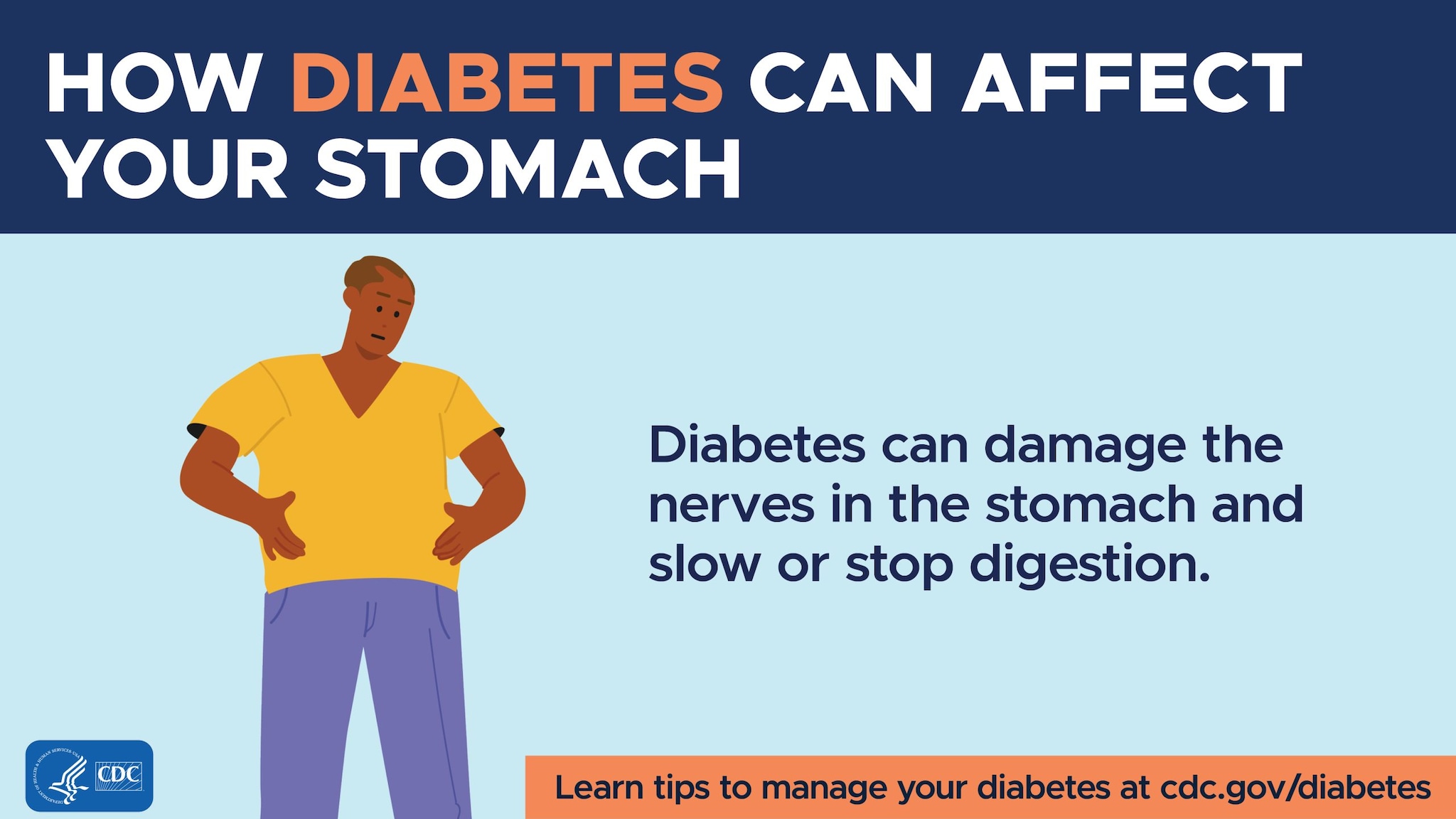What to know
- Diabetes is the most common cause of a stomach problem called gastroparesis.
- Find out why, and learn ways to prevent or manage gastroparesis.

What is gastroparesis?
Nausea, heartburn, or bloating can have many causes. But for people with diabetes, these common digestion issues shouldn't be ignored. High blood sugar can lead to gastroparesis, a condition where your stomach doesn't empty properly.

Normally, your stomach muscles tighten to move food through your digestive tract. If you have gastroparesis, nerve damage from high blood sugar can cause those muscles to slow down or stop working.
Because gastroparesis affects how fast the body absorbs food, it's harder to know how much insulin you'll need when you eat. Gastroparesis also affects how well the body absorbs food, which can lead to malnutrition if left untreated.
Symptoms
Have you ever eaten a large meal and then felt "stuffed" afterward? With gastroparesis, you may have that "stuffed" feeling, bloating, discomfort, or pain after eating even a small amount of food. This can happen soon after you start eating or long after you finish your meal if your stomach isn't emptying properly.
Other symptoms include heartburn, nausea, vomiting, and poor appetite.
Talk with your doctor if you have any of these symptoms so you can manage gastroparesis and keep it from worsening.
Tips to manage gastroparesis
There is no cure for gastroparesis.
Managing your blood sugar levels can help to prevent or delay gastroparesis. If you already have gastroparesis, this can also help you manage it to avoid other serious health problems.
Tips for gastroparesis:
- Eat frequent, small meals that are low in fat and fiber. Fat, fiber, and large meals can delay stomach emptying and make symptoms worse.
- Drink plenty of water.
- Check with your doctor and pharmacist before taking any over-the-counter medicines or dietary supplements.
- Limit or avoid alcohol.
- If you smoke, quit as soon as you can.
- Be physically active.
